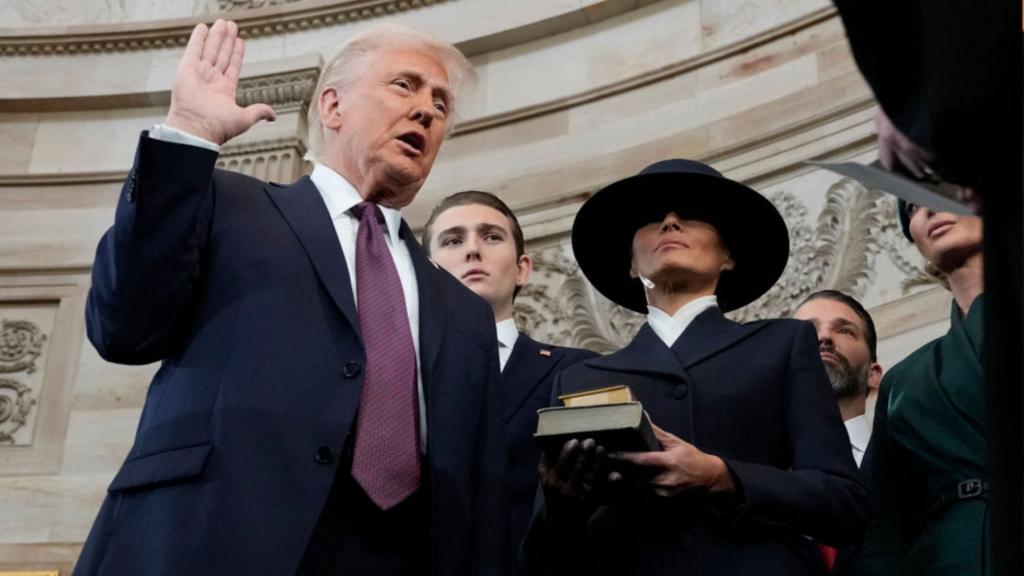In his inaugural speech, the new US President Donald Trump outlined the directions of his policy, leaving the issue of the Russian-Ukrainian war open.
The first speech of a national leader is always very important and carefully prepared as a kind of declaration of the main direction of future policy. Given Trump’s presidential experience, his words should be between his true intentions and the recent campaign promises that helped him to achieve power.
The 47th President of the United States of America has many personal reasons for doing what he said in his inaugural address. In his inaugural speech, Trump announced the arrival of a “golden age” in which the United States would be stronger than ever before and announced the creation of the strongest military. Ukraine and the Far Eastern democracies would hope that the loud intentions of a strong America include not only building a geopolitical fortress on the North American continent as “defensive isolationism” but also defending democracy and fighting dictatorships around the world.
In domestic policy, Trump promised a “common sense revolution,” rejecting left-liberal ideology and promising a return to two-sex politics rather than gender diversity. Trump has promised to send troops to the Mexican border, declare a state of emergency, and designate drug cartels as foreign terrorist organizations.
On the contrary, Trump’s declaration of a state of emergency in the energy sector means an increase in US oil production and exports, which could lower the world price of black gold and affect Russia’s budget. Similar to the drop in world oil prices that brought down the Soviet economy in the 1980s, a new surge in the oil market could significantly shake the USSR’s economy, which would affect its readiness to continue fighting and make it easier for the Kremlin tyrant to negotiate.
In his inaugural speech, Trump did not mention Ukraine, but spoke of ending a war that “we did not start.” Speaking about his historical legacy, Trump said he wanted to be a peacemaker and unifier. He also promised that the United States would not participate in the war.
Obviously, there is a reason why Trump did not mention the resolution of the conflict between Russia and Ukraine in his inaugural speech. Prior to the election, Trump’s position on Ukraine was already very vague and could be interpreted very differently by both supporters and opponents of military and financial support for Ukraine.
After all, the only person who can really end the war within 24 hours is the Russian dictator Putin, who launched the invasion. However, Russian troops are advancing every day in the Ukrainian Donbas, and the Kremlin is unwilling to make concessions. The only way to force Russia to peace is to demonstrate strength, either on the battlefield or by exerting pressure through significant sanctions and economic influence. Trump can then use both levers and wait for them to take effect.
It is clear that Trump is guided primarily by the interests and power of the United States, and the Ukrainian authorities will have to convincingly explain why a strong and resilient Ukraine is beneficial to the United States.
Author: Valeriy Maydanyuk


Leave a Reply